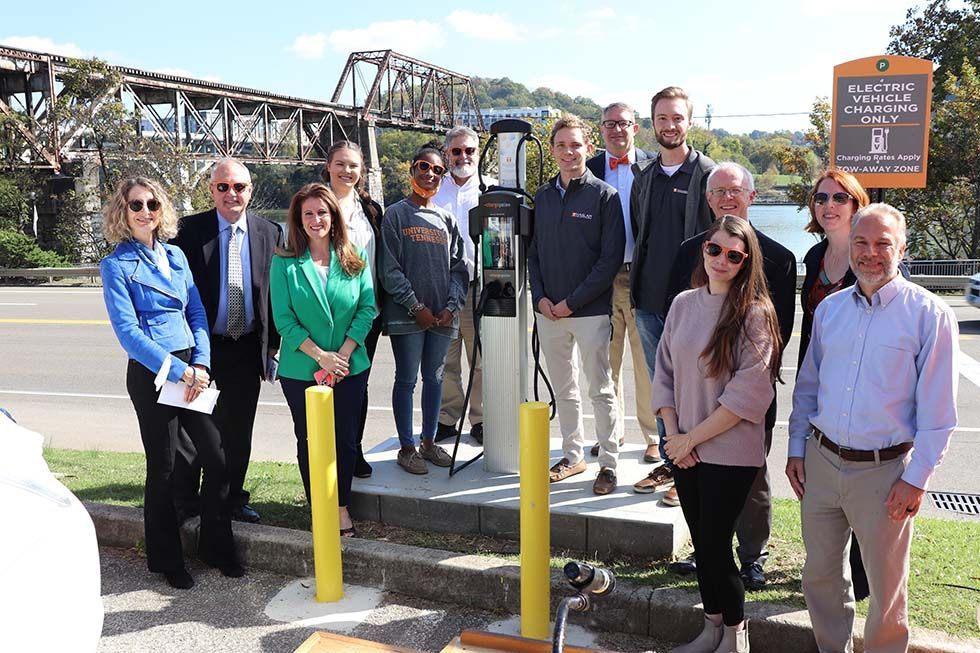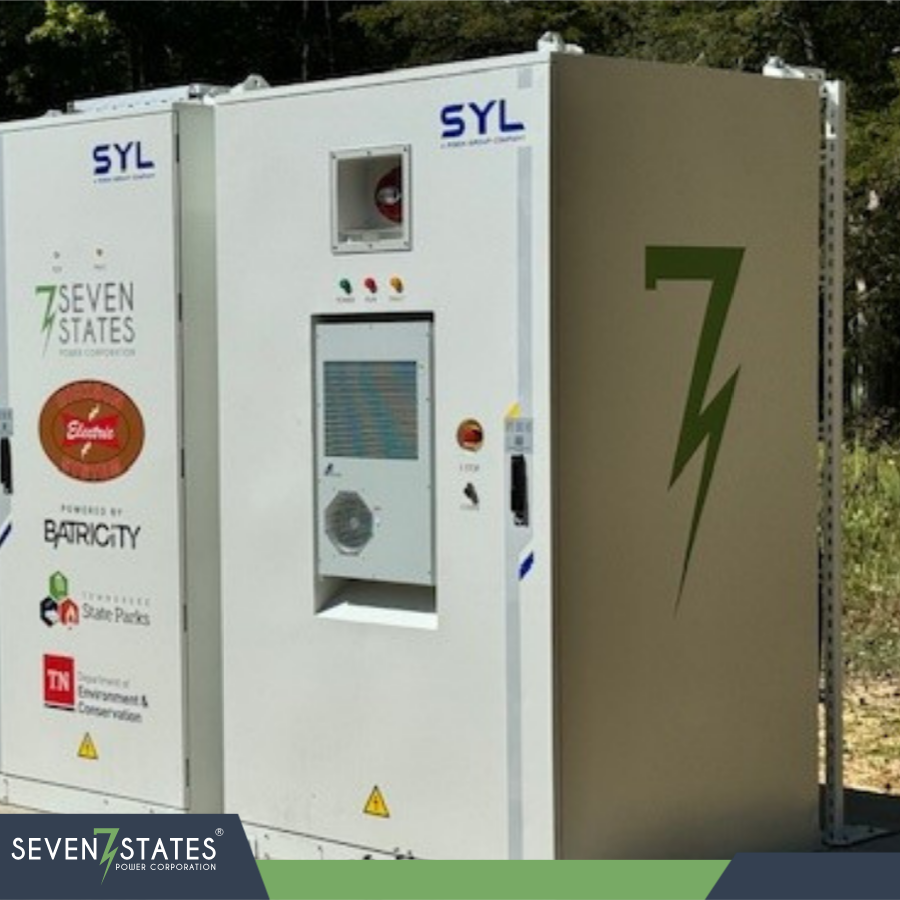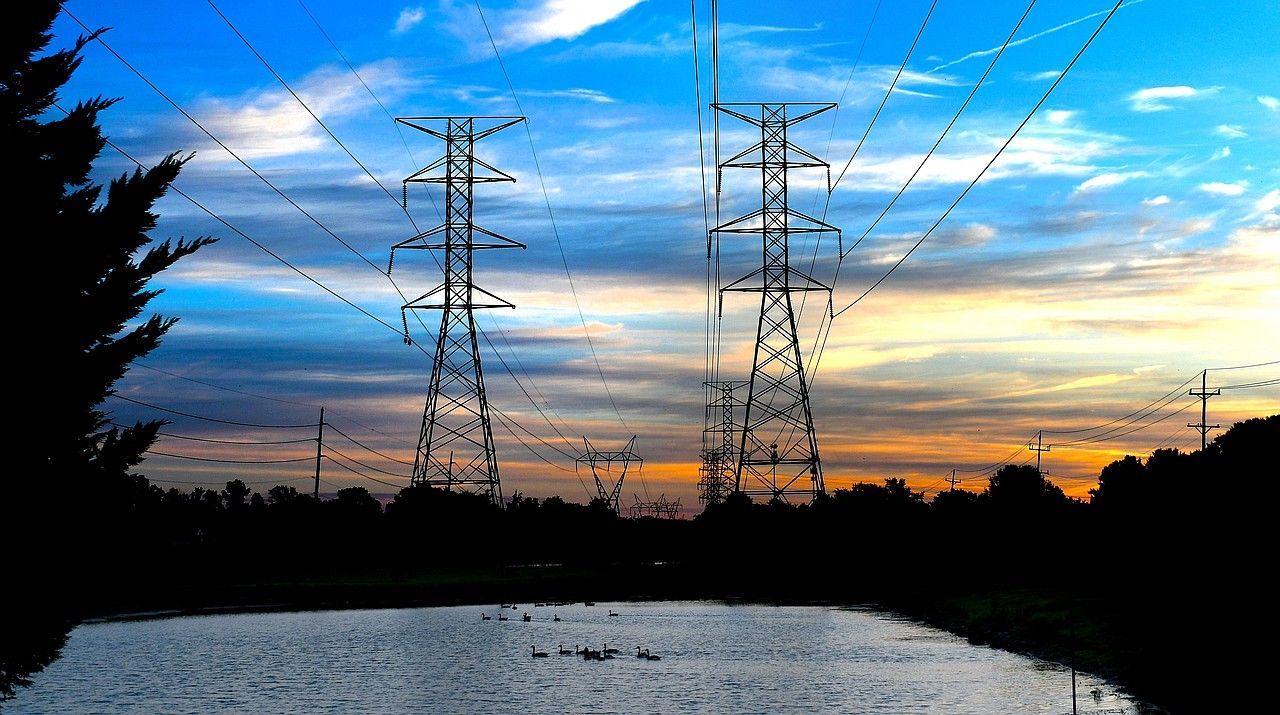
Faculty, staff, students, and visitors commuting to the east part of campus now have a new option for charging their electric vehicles, thanks to a partnership between the University of Tennessee, Knoxville, Seven States Power Corporation , and Knoxville Utilities Board (KUB).
The ChargePoint station is located in the Staff 7 lot across from the Wayne G. Basler Boathouse, and features a single unit with two charging ports. That location was chosen after students in UT’s Heath Integrated Business and Engineering Program (Heath IBEP) evaluated potential sites based off of a variety of factors.
Heath IBEP students—who come from the Haslam College of Business and Tickle College of Engineering—will use relevant skills learned through the program to address whether current chargers need to be upgraded or replaced with smart chargers, monitor and give feedback on revenue as needed, and provide other educational opportunities.
Charging at the location will be available for a fee of $1 per hour for the first four hours, with the rate increasing to $2 per hour after that.
“Our program encourages students to come together and solve issues by approaching them from both a business and an engineering aspect,” said Mary Pile, who was Heath IBEP director at the time of the project. “This undertaking is the culmination of work that began last year when we got together with Seven States and KUB, but it doesn’t end with this installation. Moving forward, the goal is to help develop an overall campus plan regarding electric vehicle chargers that can be used for years to come.”
To put the fees in perspective, the cost to charge a vehicle at the station equates to between two-to-three cents per mile, compared to between 12-14 cents per mile for an average gas engine.
For Seven States, the addition is the latest sign of growth for the company, which now has more than 100 installations across the Tennessee Valley in less than three years.
“We could not be more excited to work with the University of Tennessee, Knoxville and KUB on this installation,” said Betsey Kirk McCall, President and CEO of Seven States Power Corporation. “It is the latest example of the power of partnerships as we continue our work to build out electric vehicle infrastructure across the Tennessee Valley. We appreciate KUB, campus leadership, and the students involved in making this a reality.”
KUB, which provides public utilities to Knox County and parts of seven surrounding counties, helps promote electric vehicle use through its EV Charger Rebate Program, adoption of TVAs EV charger wholesale rate, and more.
“We’re proud to support the adoption of EVs throughout our service territory,” said KUB President and CEO Gabriel Bolas. “Partners like the University of Tennessee, TVA, and Seven States make our work toward a more sustainable future even easier, and we’re thrilled to see a new public charging station installed on campus.”
The site is the 24th EV charger installation on campus, but the only networked charger that offers the university real-time data for analysis, including evaluating the potential need for expansion to other locations.




